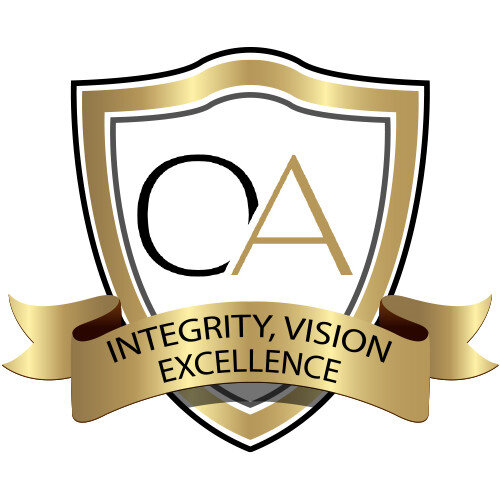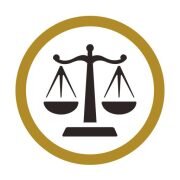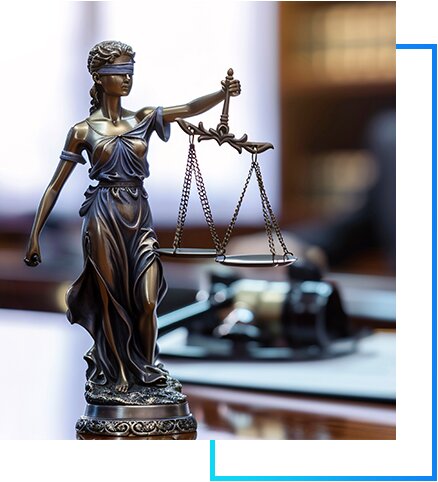Best Restructuring & Insolvency Lawyers in Durban
Share your needs with us, get contacted by law firms.
Free. Takes 2 min.
List of the best lawyers in Durban, South Africa
South Africa Restructuring & Insolvency Legal Articles
Browse our 2 legal articles about Restructuring & Insolvency in South Africa written by expert lawyers.
- Cross-Border Insolvency: Protecting Assets in South Africa
- Legal Framework: South Africa governs cross-border insolvency through the Cross-Border Insolvency Act 42 of 2000, which incorporates the UNCITRAL Model Law. Mandatory Recognition: Foreign liquidators or "representatives" have no standing to deal with South African assets until they obtain a formal recognition order from a South African High Court. COMI... Read more →
- Business Rescue Proceedings in South Africa for Directors
- Business rescue is a formal rehabilitation process designed to save "financially distressed" companies from liquidation. A general moratorium is triggered immediately, providing legal protection against creditor claims and asset seizures. The Business Rescue Practitioner (BRP) takes full management control of the company, effectively displacing the board's autonomous authority. Directors face... Read more →
About Restructuring & Insolvency Law in Durban, South Africa
Restructuring and insolvency law in Durban, South Africa is designed to help both individuals and businesses who are struggling with debt or financial distress. These laws set out the processes, protections, and responsibilities that come into play when a company or person cannot pay their debts as they fall due. Durban, being a key economic hub in KwaZulu-Natal, sees a significant amount of restructuring and insolvency activity, especially within commercial and industrial sectors. The law’s objectives are to balance the interests of debtors, creditors, employees, and the broader economy, ensuring that matters are dealt with fairly and efficiently.
Why You May Need a Lawyer
Restructuring and insolvency matters can be complex and emotionally taxing. There are several situations in which seeking legal help is advised:
- If you or your business is struggling to repay debt or facing cash flow issues
- If you have received letters of demand, summons, or threats of liquidation or sequestration from creditors
- If your business needs to consider business rescue proceedings
- If you want to challenge the actions or decisions of a liquidator or trustee
- If you are a creditor seeking to recover debts from an insolvent debtor
- If you are a director concerned about liability or obligations when your company is in financial distress
- If you are an employee or stakeholder impacted by a company’s insolvency
Local Laws Overview
Restructuring and insolvency in Durban is governed by national legislation, mainly the Companies Act 71 of 2008 and the Insolvency Act 24 of 1936. Here are some key elements relevant to Durban:
- Business Rescue - The Companies Act allows for business rescue proceedings, aimed at rehabilitating financially distressed companies through restructuring rather than liquidation.
- Liquidation - Companies or close corporations that are insolvent may face liquidation, whereby assets are sold to pay creditors.
- Sequestration - Individuals facing insolvency may be subject to sequestration, where a trustee is appointed to manage the insolvent estate and repay creditors.
- Creditor Rights - Creditors have various options, such as lodging claims against insolvent estates or applying for liquidation of debtor companies.
- Director Duties - Directors of companies operating in Durban are subject to strict duties, especially in cases of financial distress. Wrongful trading or reckless conduct can lead to personal liability.
- Court Procedures - The Durban High Court handles many restructuring and insolvency matters, with formal processes for applications, notices, and hearings.
Frequently Asked Questions
What is the difference between liquidation and business rescue?
Liquidation is the process of winding up a company’s affairs and selling its assets to pay creditors. Business rescue is a legal process aimed at turning around a financially distressed company, allowing it to continue operating while restructuring its debts.
Can individuals declare insolvency in Durban?
Yes, individuals who cannot pay their debts can undergo sequestration. This process places the individual’s estate under the control of a trustee, who manages asset sales and debt payments.
Are directors personally liable for a company’s debts in insolvency?
Directors generally are not personally liable unless they have engaged in reckless or fraudulent conduct. However, if they allowed the company to trade while insolvent, they could face personal liability.
How do creditors recover debts in insolvency proceedings?
Creditors may prove their claims by lodging the necessary documents with the appointed liquidator or trustee. The assets of the insolvent estate are then distributed among creditors according to prescribed ranks.
What is a liquidator or trustee and what do they do?
A liquidator is appointed to manage the winding-up of a company in liquidation. A trustee performs a similar role for insolvent individuals. They gather and sell assets, verify claims, and distribute proceeds to creditors.
How long do insolvency or liquidation processes take in Durban?
The duration varies depending on the complexity of the estate, the number and type of assets, the number of creditors, and legal challenges. Processes can take several months to several years.
Can employees claim unpaid wages in insolvency?
Yes, employees are recognized as preferential creditors and may claim unpaid wages, leave pay, and certain other benefits, subject to statutory limits.
Is it possible to stop creditors from taking further action against me or my company?
Once formal insolvency, sequestration, or business rescue proceedings commence, certain legal actions by creditors are halted or suspended, giving the debtor some breathing space.
What documents do I need to start business rescue or insolvency proceedings?
Typically, you will need financial statements, a statement of affairs, details of creditors and debts, and supporting documentation for assets and liabilities. A lawyer can help clarify all necessary documents.
Do I need a lawyer to handle my restructuring or insolvency matter in Durban?
While it is not mandatory to have a lawyer, it is highly advisable. Insolvency law is complex, with many procedural requirements and potential pitfalls. A lawyer can provide guidance, protect your rights, and improve outcomes.
Additional Resources
For comprehensive support and information, consider the following resources related to restructuring and insolvency in Durban and South Africa:
- The Master of the High Court in Durban - responsible for overseeing insolvency matters and the appointment of liquidators and trustees
- The Companies and Intellectual Property Commission (CIPC) - manages company registrations, business rescue filings, and related functions
- Law Society of South Africa (LSSA) - provides a directory of qualified restructuring and insolvency lawyers
- Credit Bureau Association of South Africa - for questions regarding credit records post insolvency
- Durban Chamber of Commerce - offers advice and business support, especially for companies in distress
Next Steps
If you are facing financial distress, considering restructuring, or dealing with insolvency issues in Durban, it is important to act promptly and seek professional advice. Here is what you should do next:
- Gather all relevant financial records, such as statements of assets and liabilities, lists of creditors and debts, contracts, and correspondence
- Consider your business or personal position and what outcome you hope to achieve
- Contact a reputable restructuring and insolvency lawyer based in Durban to discuss your situation in detail
- Explore all available options, including business rescue, liquidation, or informal restructuring, before making decisions
- Follow legal advice closely to avoid personal liability, unintended consequences, or additional financial losses
Lawzana helps you find the best lawyers and law firms in Durban through a curated and pre-screened list of qualified legal professionals. Our platform offers rankings and detailed profiles of attorneys and law firms, allowing you to compare based on practice areas, including Restructuring & Insolvency, experience, and client feedback.
Each profile includes a description of the firm's areas of practice, client reviews, team members and partners, year of establishment, spoken languages, office locations, contact information, social media presence, and any published articles or resources. Most firms on our platform speak English and are experienced in both local and international legal matters.
Get a quote from top-rated law firms in Durban, South Africa — quickly, securely, and without unnecessary hassle.
Disclaimer:
The information provided on this page is for general informational purposes only and does not constitute legal advice. While we strive to ensure the accuracy and relevance of the content, legal information may change over time, and interpretations of the law can vary. You should always consult with a qualified legal professional for advice specific to your situation.
We disclaim all liability for actions taken or not taken based on the content of this page. If you believe any information is incorrect or outdated, please contact us, and we will review and update it where appropriate.

















